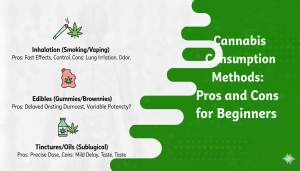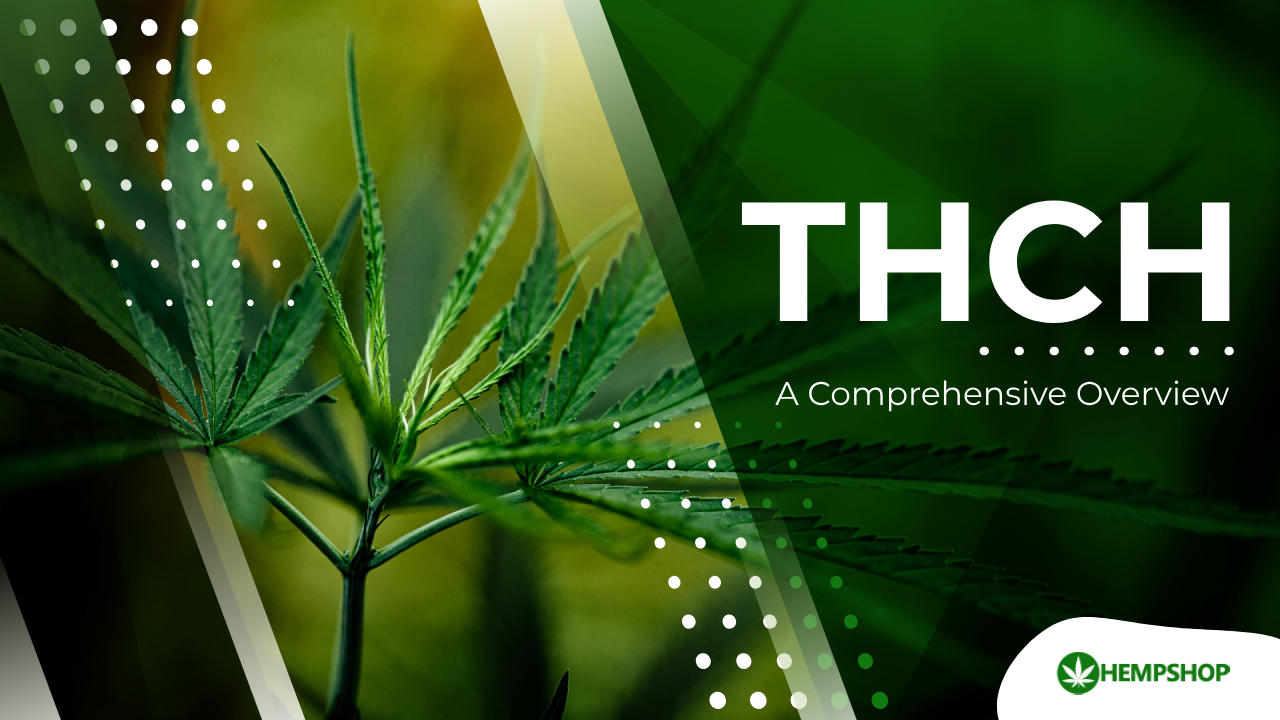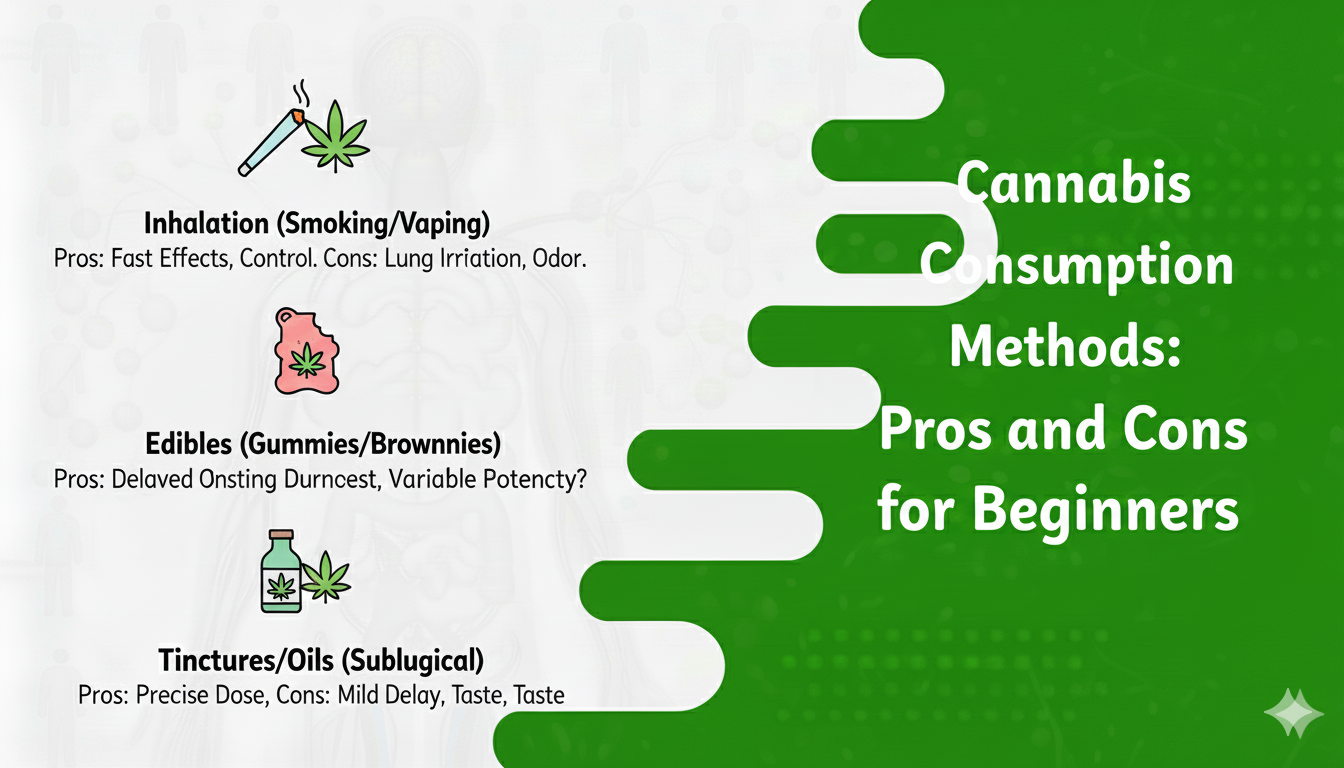There are links on this site that can be defined as affiliate links. This means that we may receive a small commission (at no cost to you) if you purchase something through the links provided on this website.
In the vast expanse of cannabinoids, THCH is a relatively recent discovery. It’s a compound that has piqued the interest of legal cannabis aficionados for its unique psychoactive properties and potential therapeutic applications. This guide delves deep into the world of THCH, shedding light on its origins, properties, potential benefits, and legal status.
Key Takeaways:
THCH, or Tetrahydrocannabihexol, is a synthetic cannabinoid discovered in 2019, five times more potent than THC, offering potential medicinal benefits.
Synthesized through terpenylation, THCH boasts a longer carbon chain, leading to heightened effects compared to THC, albeit slightly less intense.
Early research hints at appetite stimulation, pain relief, and neuroprotective properties, though further studies are needed to ascertain its therapeutic potential fully.
THCH products are available in various forms, but legality varies by jurisdiction, requiring caution in use and adherence to local regulations. Always consult a healthcare provider before starting any new supplement regimen.
What is THCH?
THCH, or Tetrahydrocannabihexol, is a phytocannabinoid discovered in 2019. As part of the tetrahydrocannabinol (THC) family, it shares some characteristics with THC, the primary psychoactive compound in cannabis. However, the unique chemical structure of THCH sets it apart from its more famous cousin, Delta-9 THC.
How is THCH Produced?
Unlike natural cannabinoids, which are typically extracted from the cannabis plant, THCH is produced synthetically. It involves a chemical process known as terpenylation, where a substance called hexyl resorcinol is combined with a terpene derivative. This reaction creates a new molecule with a longer chain than THC, resulting in the formation of THCH.
The Potency of THCH
One of the intriguing aspects of THCH is its potency. It’s thought to be approximately five times more potent than THC. The effects of THC are known for their intensity and duration, often outlasting the effects of THC. However, it’s worth noting that the maximum intensity of THCH is only slightly higher than that of THC itself.
Potential Benefits of THCH
Although research into the potential therapeutic benefits of THCH is still in its infancy, early indications suggest that it shares some of the medicinal properties of other cannabinoids. These may include
appetite stimulation,
pain relief,
neuroprotective effects,
and anti-inflammatory properties.
More research is needed to fully understand the potential medical applications of THCH.
Effects of THCH
The effects of THCH have been described as very euphoric and recreational. Users have reported experiencing a profound sense of relaxation and a heightened sensory perception. However, due to the potency of THCH, it’s important to exercise caution when using it, especially for individuals who are new to cannabinoids.
THCH Products
THCH products are not as widely available as those containing other cannabinoids. However, they can still be found in various forms, including vapes, tinctures, and edibles. It’s important to note that the potency and effects of these products can vary, so it’s essential to start with a low dose and gradually increase it until the desired effects are achieved.
Legal Aspects of THCH
The legality of THCH is a complex issue that varies depending on the jurisdiction. In some countries, THCH is regulated under the same laws as other cannabinoids, while in others, it’s considered a distinct compound with its own specific regulations. It’s recommended to check local laws and regulations before purchasing or using THCH products.
How THCH Differs from THC
While THCH and THC are both cannabinoids, they have different chemical structures. The primary difference lies in the length of their respective carbon side chains. THCH has a longer side chain, which allows it to bind more readily to receptors in the brain, resulting in a stronger effect.
Dosage and Considerations
Due to the potency of THCH, it’s critical to start with a low dose and gradually increase it until the desired effects are achieved. It’s also recommended to consult with a healthcare provider before beginning any new supplement regimen, especially for individuals with underlying health conditions or those taking other medications.
Risks and Precautions
While the potential benefits of THCH are promising, it’s important to be aware of the risks and precautions associated with its use. These can include potential interactions with other medications, an increased risk of side effects, and the possibility of developing a tolerance or dependence. Always consult with a healthcare provider before starting any new supplement regimen.
Conclusion
The discovery of THCH has opened up a new frontier in the world of cannabinoids. While research into its properties and potential benefits is still in its early stages, the prospects are exciting. As our understanding of THCH and other cannabinoids continues to grow, so too will the possibilities for their use in both therapeutic and recreational settings.
Disclaimer:
Information in this article is based on the current understanding of THCH and should not be used as medical advice. Always consult with a healthcare provider before starting any new supplement regimen. The use of THCH may be subject to legal restrictions depending on your location.














